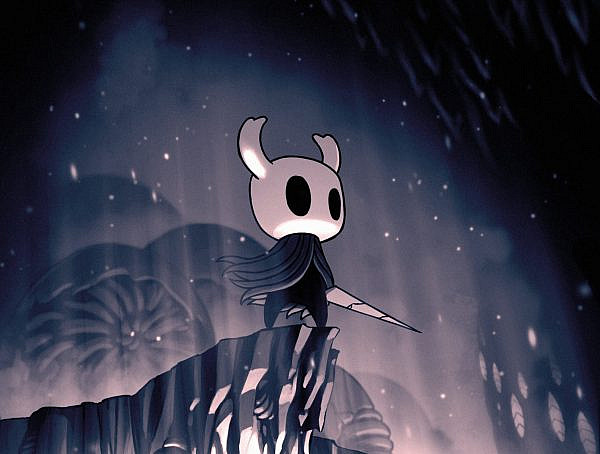The Netflix original series Squid Game has quickly taken over the world. From talk shows to viral TikTok trends people are carving shapes with a needle out of small, hardened sugar disks. Innocent childhood playground games have gotten a more sinister side to them. The Korean mini-series presents the cruel and harsh reality of the economy with ever-growing inequality of wealth distribution, the desperation of a person surviving in such a world, and the unfair quality of life.
The series follows Seong Gi-hun, a divorced man in his 40s living with his mother and fighting for every penny which he then gambles away, or occasionally for some success, which he then impulsively spends on everything useless. He quickly finds himself with debt collectors coming for his head but gets another chance by signing away his organs if the money is not found. Going home in despair, he is approached by a man in business attire wanting to play a simple children’s game for money, and afterwards is presented with the possibility of playing more games and possibly becoming a billionaire, just by calling the number on the card given.
Being in desperate need of money, a phone call later he finds himself with over 400 other people with similar backgrounds in crippling debt, competing in children’s games with a deadly twist. Each death accumulates the jackpot.
Trailer of the Netflix original series, Squid Game
The Games
There are six games the competitors must complete. In the end, only one can be the winner and everyone else must be eliminated (killed). The game makers emphasise that they are fair, and the winner does indeed get the price money. Despite the previous game maker’s disclosure, the games cannot be won purely by skill, and often the rules are told only when the players have made some decisions that affect their run. The players are, for instance, commanded to find a partner, or to select the order in which they will play, and only after they are told how their decisions will affect the outcome. For example, with choosing a certain position in the running order, the player could have chosen a certain death.
Going back to Gi-hun’s gambling addiction, it is now established that the games cannot be beaten solely by skill. With Gi-hun, facing the addiction with a more valuable aspect than just money, his life, the risks of gambling are realised. Other characters, such as Jang Deok-su, a gangster with a tendency to only think about himself and fail promises, finds himself in a position where his actions to other people might end up with him losing it all.
Why?
Hundreds of people are sent to die. Billions are given away. Why do these games exist? If it was purely charity work, why would there be deadly games involved? Has Jigsaw from the Saw films returned with a new colourful and stylish real estate and everything is only meant for his pleasure?
The show has become the most watched Netflix show in its first 28 days with over 111 million viewers worldwide. Why is the series so successful? We have our favourite competitors, and we might theorise in our heads who might do well in the next game or who might fail. We might try to put together the hints of what the next game might be to develop a strategy to win as if we were playing ourselves, or who plays the best so that we can in our heads bet on the winner.
For viewers, it’s an exhilarating game of strategy and mentally betting for the right outcome. Not many series or films have similar qualities: we are observing a fictional reality show.
The popularity of the series can be seen on the streets in the form of fan events
Society for the Wealthy
As seen on the trailer, there are wealthy-looking people observing the games. These anonymous billionaires are betting millions on their favourites and watching them die while nonchalantly eating grapes and drinking wine. People are dying just for entertainment for the rich. These people are the horses of the horse race for the rich.
The VIPs try to come up with strategies as to who might be the winner, who shines on certain games, and who might be the weakest link. Just like us. Aren’t we, the viewers, doing the exact same, not necessarily with Squid Game as it’s a fictional acted show, but with several reality shows: we want to watch, peep, condemn, and laugh at people who might be, not dying, but setting themselves as an object of ridicule, pity, and public humiliation, all for a monetary prize or sometimes just publicity.
Squid Game is supposed to be a critique of Korean society with people struggling with debt living in bad conditions while the rich take advantage of them and treat them as second-class people. The ideology and message of the show could also be applied to other countries, specifically many western countries. The wealth of many countries is often accumulated by taking advantage of poor people, often in a different country, for instance by having them make all the fast fashion clothes earning just enough to survive to the next day.
TV game shows and reality programmes are popular and many enjoy watching people on TV play games for prize money, laugh at their expense, and attache “Big Brother” to someone’s name so that we’ll always know the show where we saw them embarrassing themselves piss-drunk. These people make decisions live on TV, often bad ones, just like everyone else, just these have consequences, but instead of dying like in Squid Game, they are on permanent record on video.
The Show
Squid Game is worthy of its fame: it has solid performances, beautiful art design, and a great plot. What strikes deeper than the life-or-death games, is the underlying message. With the previous in mind, I can fully recommend Squid Game for everyone, except for those that are prone to anxiety attacks, are sensitive to gore, or might have photosensitive epilepsy. Also, please watch the series in Korean as the English dub is horrendous.
Title: Squid Game
Directed and written by: Hwang Dong-hyuk
Available at: Netflix
Age restriction: 16+
Image by author















